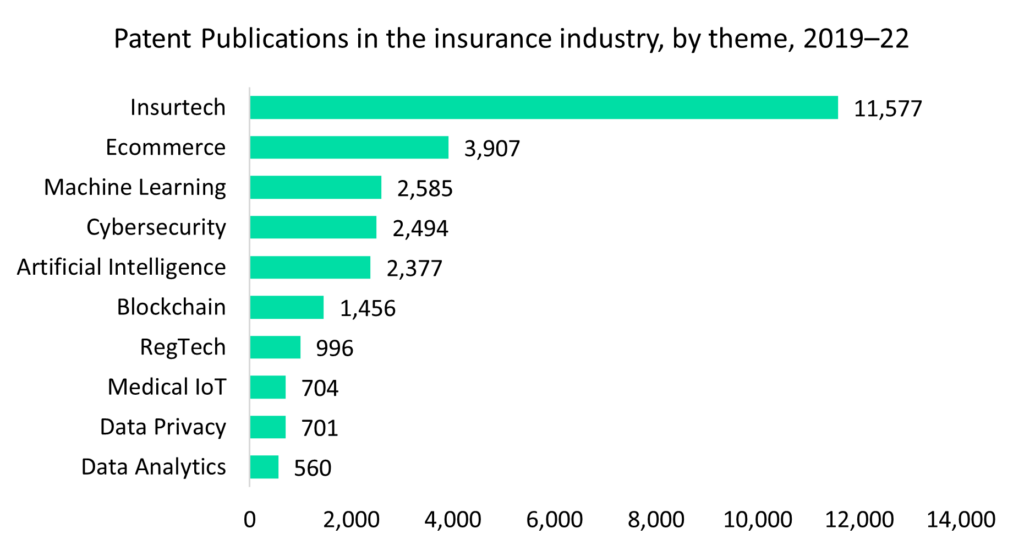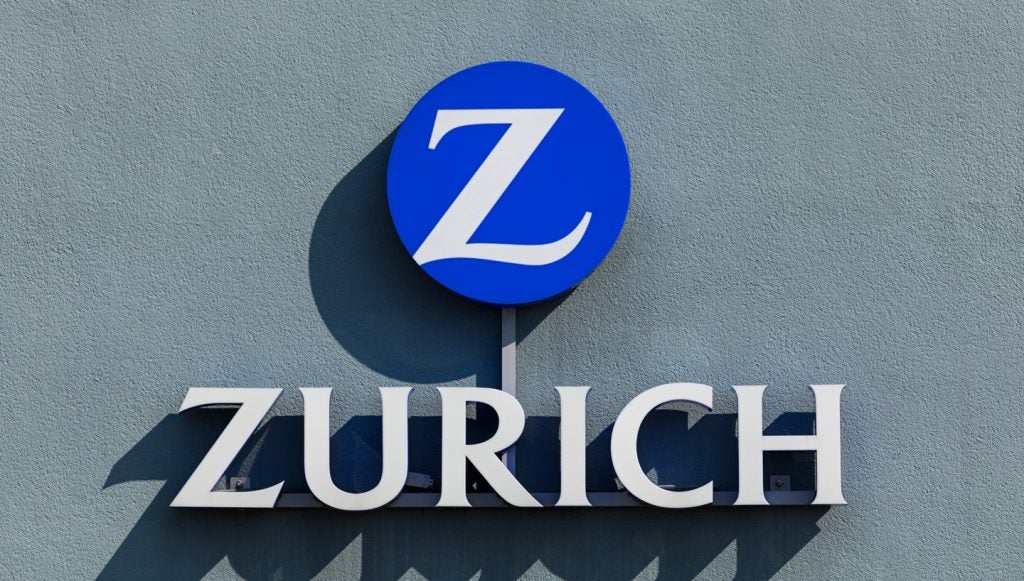Parametric insurance for farmers and vulnerable communities in areas susceptible to adverse weather events is becoming more regularly utilised as insurers develop blockchain-based technologies. GlobalData’s Patents Analytics Database indicates that technology using blockchain is commonly patented in the insurance industry, with insurers beginning to find uses for it across the world.
Over the past three years, there have been 1,456 patents published in the insurance industry surrounding the blockchain theme. Its standing ahead of some other key themes in the industry, notably data analytics, shows how insurance companies are taking the technology seriously and finding powerful use cases for it. While previously the school of thought had been that blockchain was a solution looking for a problem, parametric insurance is becoming a growing area for insurers to explore. The blockchain aspect of these policies means that claims payouts happen automatically once a pre-agreed parameter has been met, such as rainfall (both high and low levels) and windspeeds. This makes these policies cheaper to operate, as claims adjustors are not required, making this type of insurance ideal for less developed parts of the world – particularly those exposed to adverse weather events brought about by climate change.

One such example is Aon’s partnership with Oxfam to provide microinsurance to farmers in Sri Lanka. In the scheme, weather stations measure rainfall and trigger payouts in the event of abnormally high or low levels. This allows farmers to replace lost earnings or damaged equipment more quickly. With around 20% of the Sri Lankan population working as farmers, this could therefore be vital to the growth and development of the island, over time helping to alleviate poverty in the nation.
More recently, a novel approach to humanitarian financing has been launched in six countries at risk of climate shock. Start Ready offers a parametric solution that is triggered on the warning or prediction of a climate catastrophe (based on data and modeling). This enables humanitarian agencies to begin preparing support and relief before the event takes place, strengthening resilience for the affected area. Countries involved in this scheme include Senegal (for drought protection), the Philippines (cyclone protection), and Bangladesh (flood protection).
How well do you really know your competitors?
Access the most comprehensive Company Profiles on the market, powered by GlobalData. Save hours of research. Gain competitive edge.

Thank you!
Your download email will arrive shortly
Not ready to buy yet? Download a free sample
We are confident about the unique quality of our Company Profiles. However, we want you to make the most beneficial decision for your business, so we offer a free sample that you can download by submitting the below form
By GlobalData







